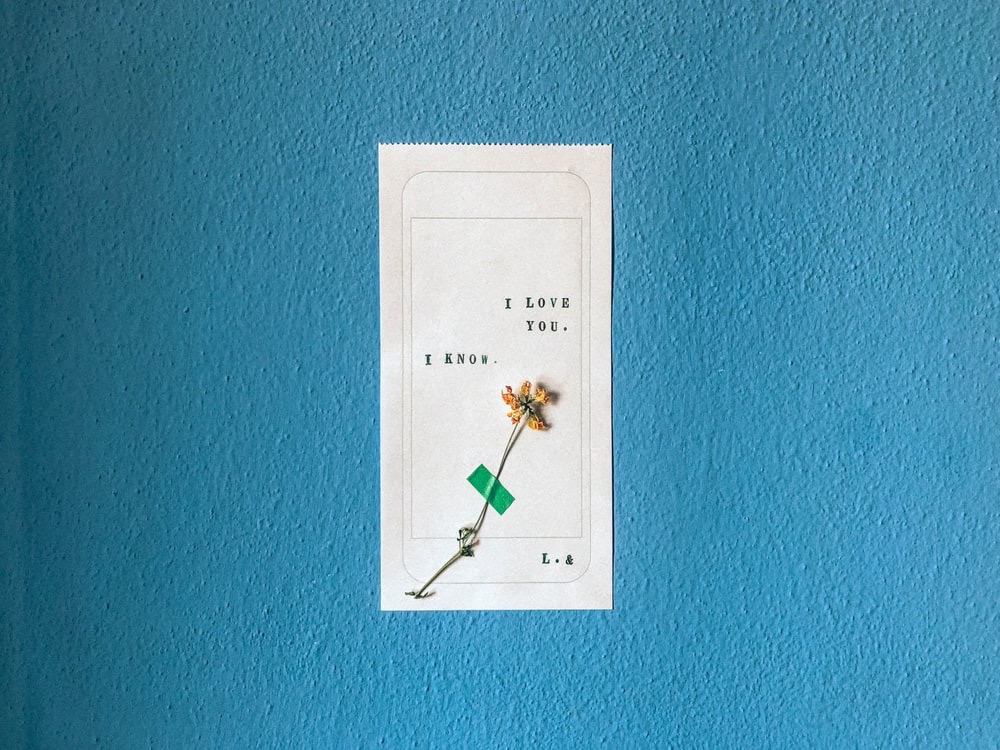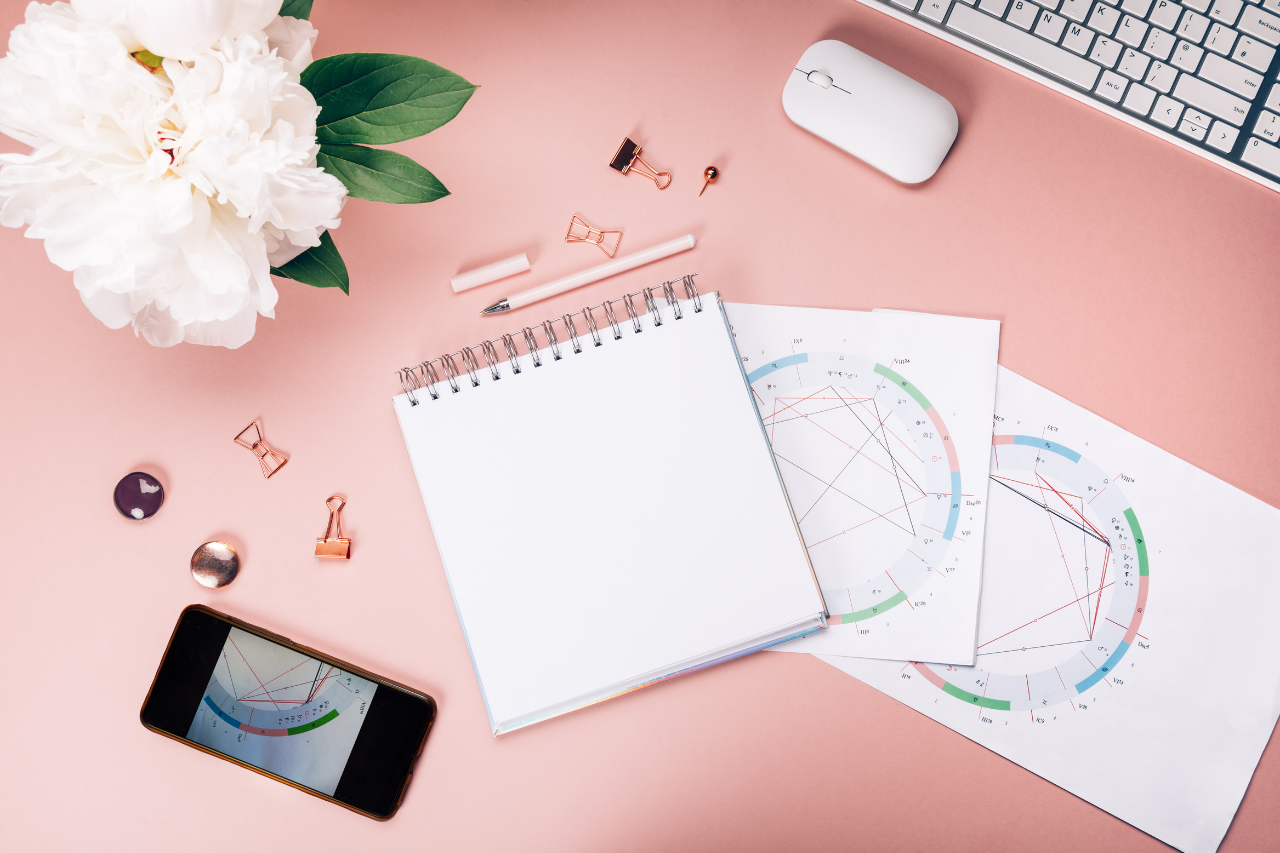
Everyone’s dealt with insecurities and had moments of self-doubt. We’re all only human, it’s natural. A lot of times our insecurities stem from past experiences and relationships, and areas where we feel like we don’t measure up to some standard. Dealing with insecurities in general can be challenging at times, but when they start to affect your relationship, that’s when you have a problem.
Every moment in our lives shapes us and gives us the opportunity to learn and grow from. When these insecurities start poking around in your relationship, it’s because there’s something inside of you that hasn’t been confronted and dealt with yet. (Been there, done that.) It doesn’t mean that there’s anything wrong with you—there isn’t a person in the world who hasn’t had their insecurities slip into one of their relationships at one point or another—it simply means that there’s a part of you that is still wounded from something in your past. When these insecurities pop up, you have the opportunity to learn and grow from them so that you can finally fully heal, move on, and have your dream relationship; or you can choose to ignore them and see what happens. Spoiler alert: it won’t be pretty.
The good news is is that it’s common to have insecurities come out in relationships, and if you find that they are now, that doesn’t mean your relationship is doomed. So, are your insecurities controlling your relationship? Maybe, maybe not. I’ve broken down the signs below, where these insecurities stem from, and what you can do to heal, grow, and have a flawless relationship.
Signs your insecurities are controlling your relationship:

- You’re jealous. This is, perhaps, the most obvious sign that you’re allowing your insecurities to enter into your relationship. At first, jealousy may seem a little cute and healthy, but after awhile, it gets old—and it gets old fast. When people hear the word jealousy, they oftentimes think of their partner being attracted to someone else, but jealousy can take on many forms. It can show in ways of being jealous of your S.O’s other friendships, success, happiness, etc.
- You feel the need to discipline them for being happy and/or having fun. This is another red flag that you’re letting your insecurities control your relationship. You’ll often feel betrayed by your S.O’s happiness or the fact that they’re happy and having fun without you, and you’ll want to knock them down a peg to bring them back to your level.
- You’re controlling. If you find yourself micromanaging your S.O—asking them what they’re up to, what time they’ll be home, where they are exactly—is another warning sign that your insecurities are, quite literally, controlling your relationship. Feeling the need to be around them 24/7 ties into this as well, as it’s usually an effort to keep and eye on your partner and, in your mind, maintain control over them because you’re right there, watching.
- You put on a facade in front of them and/or other people. If you put on a tough act in front of your partner and/or anyone else, you’re letting your insecurities control your relationship. You’re subconsciously reminding everyone that you have 1 foot out the door, and you’re trying to make a point—both to yourself and everyone else—that you’ll be just fine should they ever leave.
- You don’t fully trust or let them in. Keeping walls up is a surefire way to keep someone at arm’s length. If you don’t ever fully let your partner in or trust them completely, how can you expect to have a healthy and honest relationship? This is another red flag of insecurities infiltrating your relationship.
- You need constant validation from your partner. Questions such as: Do you still find me attractive? Do you still love me the way you did yesterday and the day before that? Are you happy with me? Are all examples of the need for constant validation from your partner, which stems from insecurity.

Where these insecurities stem from:
- Jealousy. Jealousy usually stems from deep-rooted insecurities. Somewhere deep inside, you feel flawed in some way, like you’re not good enough for this person and the relationship. That’s all jealousy is, really. Say, for example, you’re jealous over your partner’s success, it’s probably because you feel like you’ll never be able to live up to that standard. Jealousy can manifest in many forms; it oftentimes stems from things we’ve taken from our childhood, past relationships, and experiences.
- Disciplining them. Feeling the need to discipline your partner usually means that you’re unhappy with yourself. How dare they have fun while I sit here like this? How dare they act that way without me? Misery loves company, and when insecurities are around, this couldn’t be more true.
- Being controlling. All forms of controllingness stem from fear. The unknown is a scary thing, which is why people tend to act out and attempt to control every single thing around them because they believe that’s the only way to make sure the outcome is good. Spoiler alert: control is just an illusion. Being controlling in your relationship gives you a false sense of security in which your partner won’t leave you. Again, this stems from fear. Whatever you’re most afraid of in relationships is causing you to take it out on your partner by attempting to control them.
- Putting on facades. This is an interesting one because people oftentimes mistake facades for humor. But deep-down inside, they’re really not—they’re a mask you’re wearing because you’re terrified of what will happen when you finally take it off. You’re terrified of what could happen if you finally pull back the curtain and reveal the true nature of yourself. This is something that’s typically done subsconsciously and stems from trauma from your past that you haven’t fully dealt with and healed from.
- Not fully trusting/letting them in. Putting up walls is a defense mechanism. Somewhere along the way in your life, you’ve been hurt to the point where you’ve felt the need to protect yourself at all costs. Somewhere along the way, you’ve learned that this is the only way to avoid getting hurt—but that’s all wrong. This stems from insecurity in the fact that it’s from painful wounds that you may even believe you’ve dealt with, but really haven’t. Whatever scars you’ve been carrying around inside have become embedded in you and will drive a wedge in your relationship. You’re scared of baring your soul to someone and being rejected and/or hurt.
- The need for constant validation. Seeking constant validation and reassurance from your partner usually comes from the fact that somewhere inside, you feel unworthy of love. There’s some part of you that doesn’t believe you deserve to be loved by this person, and you need to constantly be reminded that miraculously, this person still does love you. This happens when you don’t love yourself.

What to do:
This may all seem very bleak, but there is good news. The good news is that if you’ve allowed your insecurities to control your relationship, it’s fixable. (Trust me, I know.) It’s fixable, as long as you’re willing to make an effort and put the work in to grow and change; if you’re willing and genuinely want to learn how to love yourself and become confident in who you are as a person, flaws and all.
For the sake of being fully transparent, a lot of self-love and confidence comes with age and maturity. Naturally, the older you are, the more you’ve (hopefully) learned from your life experiences. Most people really don’t feel like they’ve come into their own until their early 20’s (21, 22, 23, and 24) at the earliest, because there are still a lot of changes happening in your life at that time. Regardless, everyone I’ve ever talked to has said that as they age they feel like they become more comfortable and confident in who they are. I’m 25, and I feel like now I’m coming into my own and who I’m meant to be more than ever. In my own experience, I didn’t start feeling confident until around 22. My boyfriend’s going to be 30 this year and he’s said that he feels more confident now than he ever has. This confidence also goes hand-in-hand with the lessons we all learn along the way. The more experiences you’ve been through and learned from, the more confident you’ll be, and the more you’ll have healed; the more ready you’ll be for a real relationship. There’s no right or wrong way to come into your own, no right or wrong time, but 19 year old Arianna is night-and-day different than 21, 23, and 25 year old Arianna. In fact, I used to be insecure in my current relationship, but after I lost everything in my car accident, I was able to learn and grow from my past experiences, and work on really loving myself so I could finally allow someone else to really love me. This is what helped me find true confidence, and also give me the strength and courage to fully open myself up in my relationship. Previously, I’d been terrified of being vulnerable, and I unknowingly put walls up as a way to protect myself. But these walls didn’t protect me, they did just the opposite. They drove a wedge into my relationship. Had I not taken the time to look deep inside myself and the wounds I hadn’t healed from that were manifesting as insecurities, I might not be with my boyfriend today.
You’re going to need to do a lot of self-exploration if you want to get to a point where your insecurities are no longer controlling your relationship. This can be done through practices like therapy, extensive journaling, self-help books, and working towards a higher consciousness through things like meditating. It can be hard to do this on your own, and I’d highly recommend seeing a therapist if you’re unsure of which path is right for you because they will give you the necessary tools that will help guide you in your journey. Fair warning, though: none of these will work unless you’re willing to and actively put in the work yourself. You can’t expect change to happen if you’re not making an effort. These practices will force you to take a look inside yourself and really ask yourself where these feelings and behaviors come from. Why do you think you put walls up? What are you most scared of? Why do you feel the need to control or discipline your partner? Where does your jealousy stem from? What are you trying to prove by putting on a facade? Sit with these questions and thoughts, meditate on them if you have to. Try going back to your younger years to see if you can find where these insecurities all started. We all take things from our past and childhood into our adult life; it’s up to us whether or not we want them to control us and our relationships for the rest of our lives. This will be hard and require 100% honesty with yourself, but it will be so worth it in the end.

Also, make sure you talk to your S.O about what’s going on. Be honest about where you think your insecurities stem from, and make an active effort to work on them. Don’t just talk the talk, walk the walk. If it’s something you’re both open to and think will be beneficial, you can even try couples counseling. It’s important that your partner really understands you, and allowing them a glimpse into your behavior and thought patterns will also be a show of effort that you’re truly trying to change and open yourself up. It’ll be helpful for both of you to have an understanding of where certain behaviors come from. Ultimately, all of this will also bring you two closer together. Someone who really loves and cares about you will be happy that you’re making the change for yourself and be supportive of it, they won’t leave you because it’s “taking too long” or they don’t want to wait around while you figure your sh*t out.
You need to learn how to love yourself and be OK with letting go. Eventually, in time, you’ll come to a place where you’re confident in yourself and who you are. That confidence will in turn allow you to be confident in your relationship and your partner, while giving you the opportunity to finally fully open yourself up and let your S.O in. The things you once spent so much time thinking about and/or acting on will seem silly once you reach this point. You’ll be amazed at how quickly all of that behavior and those insecurities go away once you begin to work on yourself, heal, and grow. You’ll finally be happy enough and confident in yourself to surrender to the unknown, fully love another, and know that at the end of the day, no matter what happens, everything is going to be just fine.


